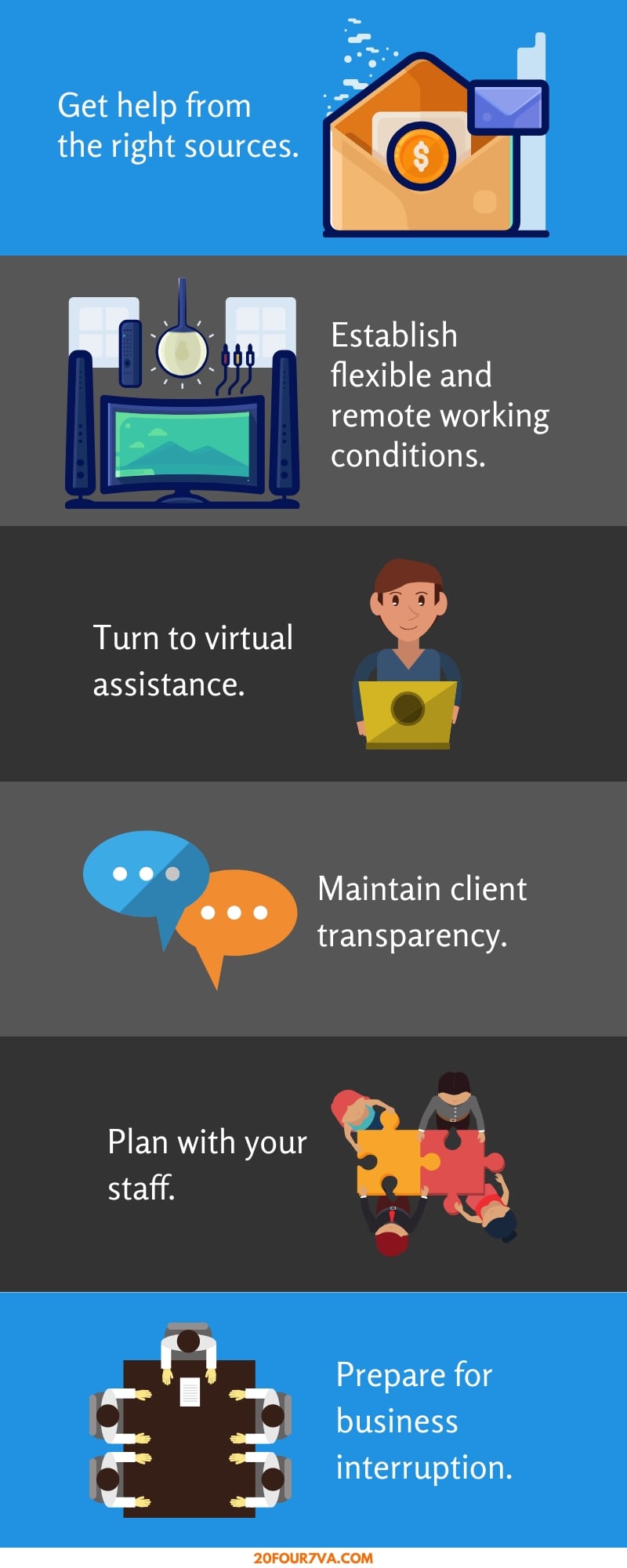COVID-19 guidance for business

A looming stock market crash, worldwide travel restrictions, school and business closures, full-on community lockdowns — these are just the visible repercussions that the COVID-19 has brought upon the entire world.
The novel coronavirus pandemic has only been around for a few months, but it seems to have put the world to a standstill. With establishments forced to close or reduce operating hours, entrepreneurs are scrambling for some COVID-19 guidance for business operations.
COVID-19 Information for Business Owners
Apart from its detrimental health effects both physically and psychologically, the COVID-19 pandemic is sure to leave severe economic repercussions in its wake. In fact, a research in Canada showed that people fear the economic impact of the virus more than its health ramifications.
What does this mean for businesses?
A separate study showed that over 80% of adults from all over the world think that businesses should be held responsible for their workers and community amidst the pandemic. This responsibility includes protecting workers from the virus and maintaining a sustainable community.
As a business owner, you need a solid plan to meet these expectations and quench the growing fear in your community and among your staff. But what if the situation is leaving you with some doubts yourself? This is especially true for small business owners with small budgets that leave little room for contingencies.
To keep your business afloat during this time of crisis, you need to have a solid business continuity plan.
7 Tips on How to Make Your Small Business COVID-19 Ready
How do you keep your small business going when everywhere you look, businesses are forced to either reduce their hours, pause operations, or shut down completely? By not resorting to panic. It’s important to keep a clear head and approach the matter with foresight and as much knowledge about the situation as possible.
It’s not too late to secure your business amidst the pandemic. Here are 7 tips on how to make your small business COVID-19 ready:

-
Get help from the right sources.
Government officials are rallying to help business owners keep themselves, their customers, and their employees healthy. In the US, SBA (Small Business Administration) has collaborated with local partners so that entrepreneurs can access business counsel and financial assistance. SBA also developed LenderMatch, a tool connecting business owners with SBA-approved lenders in just 2 days. To ensure you are only getting credible COVID-19 Information for Small Business, check out the SBA guidance for loans and other resources here.
-
Establish flexible and remote working conditions.
As more and more local governments order community quarantines and lockdowns, companies have turned to remote work as an ideal business solution. With your in-house staff, transition to work from home using the different tools and software for remote collaboration. Check out these 6 tools for remote team management for some inspiration. Remember to establish working hours and designate projects from the get-go.
-
Turn to virtual assistance.
Now is the best time to switch some, if not all, of your operations virtually. There are various tools and platforms to help businesses with inventory and order management, shipment, and administration. Virtual assistance will not only keep your business afloat; it will also help you maximize your budget by reducing operational costs. Check out these 5 business expenses you can reduce by hiring a virtual assistant.
TIP: Worried about service delays, admin, HR and payroll difficulties, or unreliable virtual assistants? Don’t be! Partner with a full-service virtual staffing company like 20four7VA so you can find a suitable virtual assistant in just 48-72 hours. A full-service virtual assistant provider also handles several key hiring, management, and payroll functions, so you won’t have to worry about having a difficult transition.
-
Maintain client transparency.
According to Harvard Business Review, customers are less likely to appreciate and support a business that keeps them in the dark. As people are growing anxious and confused, make sure your customers know what to expect from your business. Let your customers know what precautions and safety measures you’ve adapted to keep them and your services safe, your workplace sanitized, and your workers healthy. Post your operating hours on your website and social media, promptly answer concerns, and update your customers for any changes regarding your business.
-
Explore new ideas.
It may sound counter-intuitive but according to entrepreneur Mark Cuban, now is a great time to experiment with new ideas. You don’t necessarily need to launch a new product line; just consider what current needs you can service. The Body Shop, for example, found a great way to help their customers amidst viral infection and shortage of disinfectants. The company introduced different ways that people can use existing Body Shop products for sanitation and virus protection.
-
Plan with your staff.
Lead with compassion and be honest about your situation. Ask your team for ideas on how you can weather downturns, especially if you’re making decisions that affect their circumstances. Bring your team together to come up with solutions for short-term and long-term issues. You can even conduct emergency planning exercises to prepare, respond, and recover from the different ways the pandemic can affect your business.
-
Prepare for business interruption.
Although the plan is to continue operations, it’s still crucial to cover your bases for business interruption. Contact your insurance provider to review or update your policy. Make sure that you understand how you are covered for business interruption so you can act accordingly.
Follow these 7 steps for businesses during COVID-19 to protect your company and keep operations going. If you’re looking to hire a virtual assistant to help your business, we’d love to assist you with the transition. Click here to schedule a FREE, no-obligation consultation call with us.










